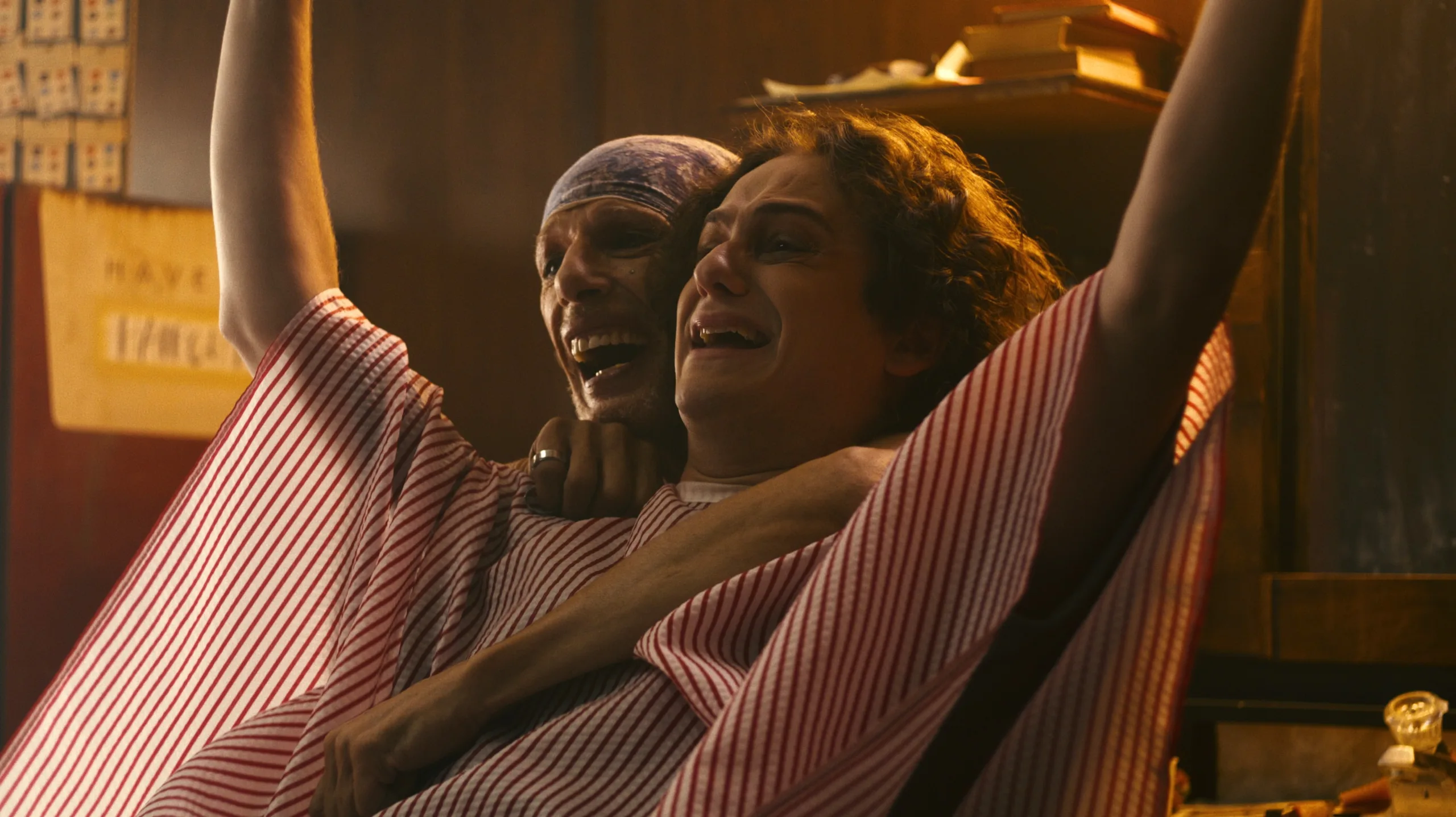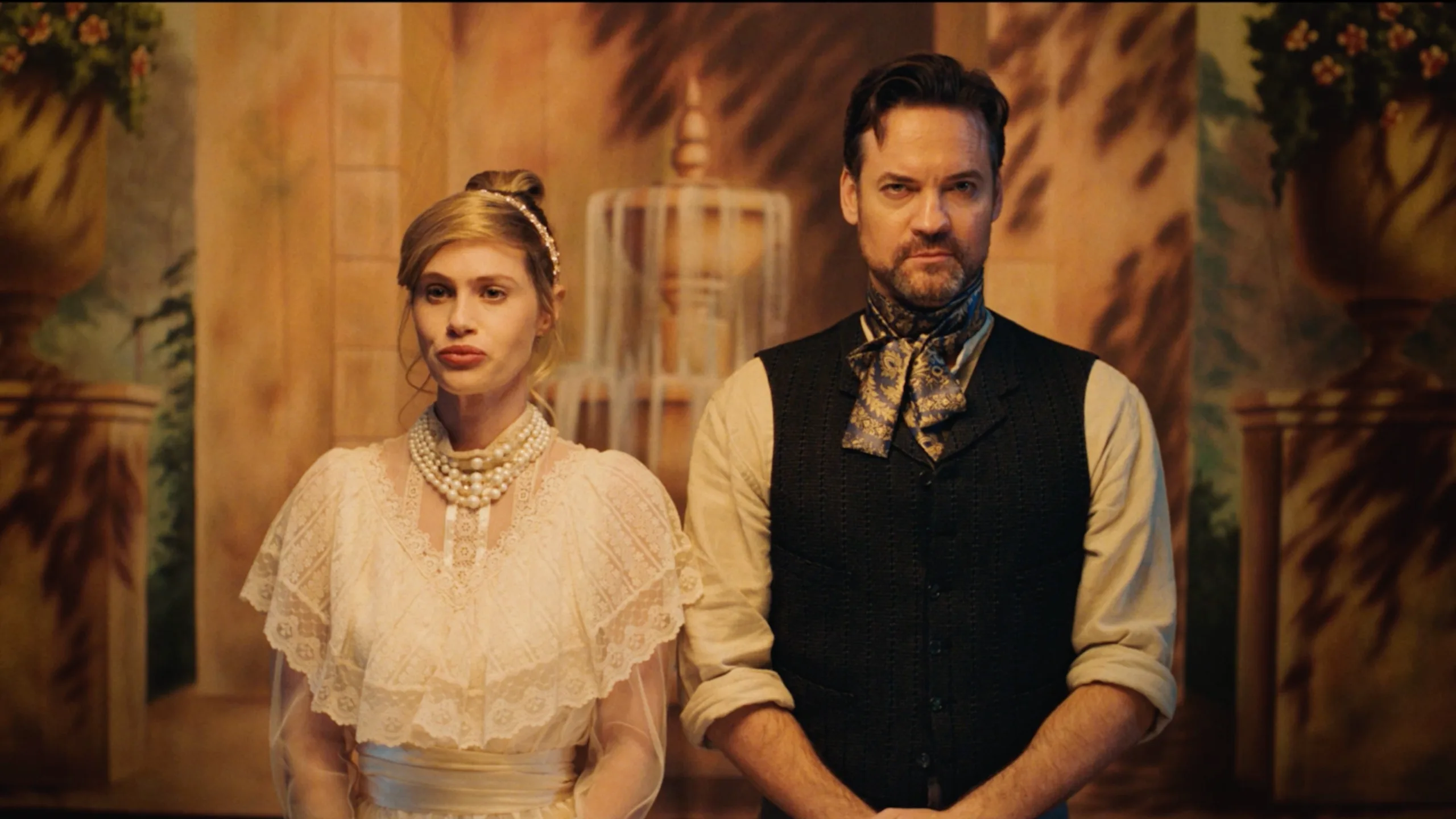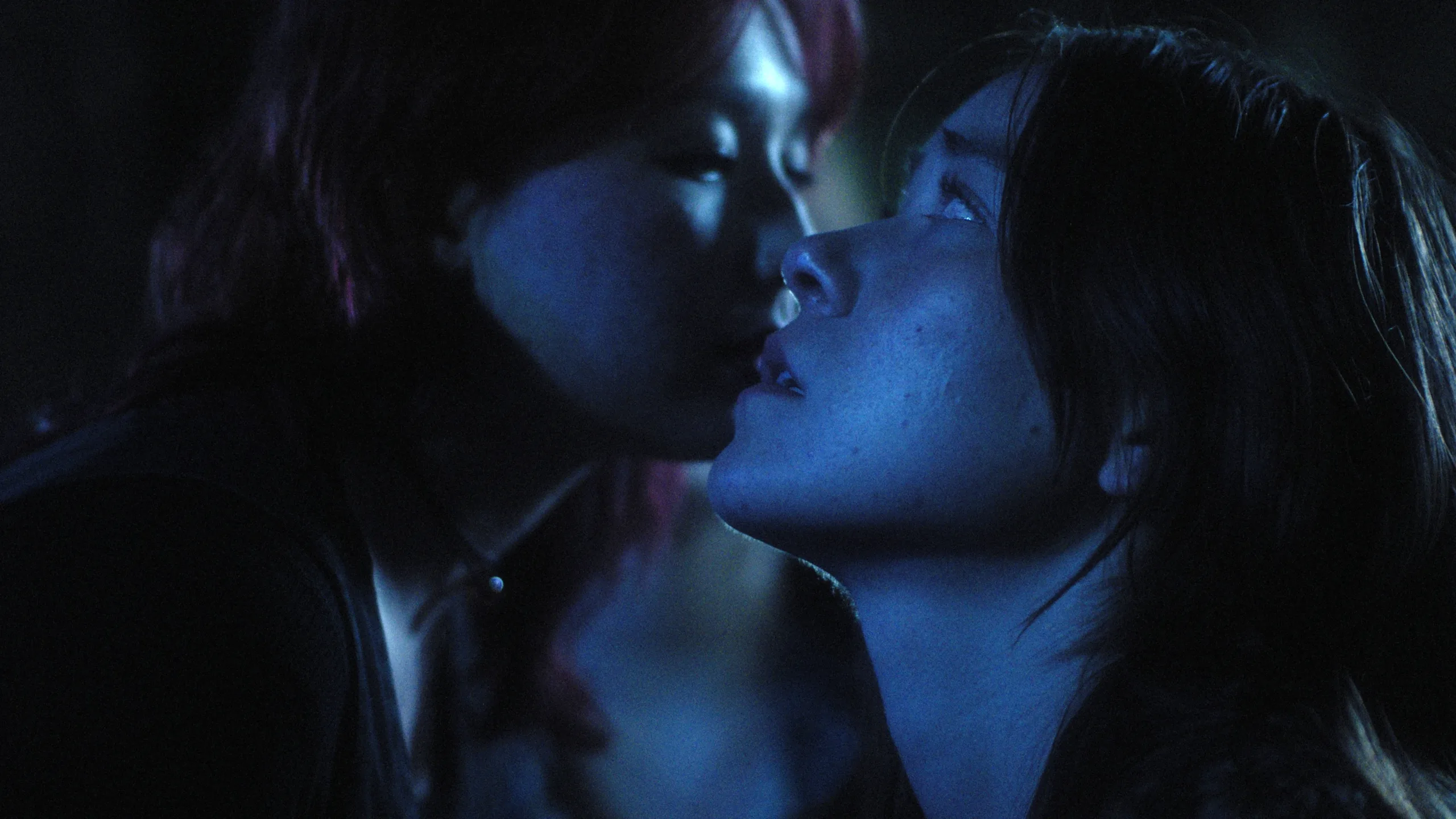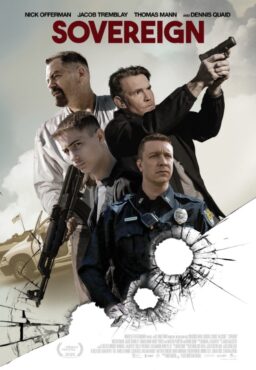My final dispatch from the annual genre fest known as Fantastic Fest highlights three young filmmakers, a reminder of how much this event seeks to amplify new talent. It’s also a remarkable showcase for inclusivity, as the programming team seeks out and elevates the kind of voices that the Hollywood system often ignores, including LGTBQ filmmakers and artists from regions of the world that don’t get highlighted enough on the culture-shaping streaming services. The three films in this dispatch are a mixed bag of quality, but I admire the courage and passion it took to bring all three of them to life and can think of no better place for them to have debuted than Fantastic Fest.
The best of the three is Avalon Fast’s “CAMP,” which also won the Next Wave Award, a juried prize, at this year’s event, making its filmmaker one of the youngest such recipients of that prize at just 25. Fast is an undeniable talent, a filmmaker who knows how to tap into repressed emotions and how to reflect the simmering impact of trauma cinematically. She has made a very unusual teen witch film that feels at first like it could be a modern variation on something like “The Craft,” but what works best about this project is how it feels more concerned with conveying something that’s emotionally true than anything else. It’s a story of overcoming grief and forgiving yourself, guided by both a vulnerable performance from Zola Grimmer and Fast’s confident sense of tone and space.
Grimmer plays Emily, who we witness suffer a horrible tragedy early in the film when her friend overdoses in front of her, after doing Emily’s drugs. Blaming herself for the death, she becomes a counselor at a summer camp for troubled teens, not realizing before getting there that it’s a religious institution. However, Emily discovers shortly after arriving that there’s a group of female counselors carving their own way through life and faith, becoming attuned to both the natural world around them and the emotional truths within them.
“CAMP” feels at times like it’s hurtling toward a traditional narrative—a coming-of-age tale about a teenager forgiving herself with the help of her new witchcraft-loving friends—but what separates it is not just Fast’s tonal grip throughout but her willingness to take a left turn when you expect her to go right. Instead of offering pat resolutions, the final act of “CAMP” gets trippier, capturing how forgiveness often takes a sort of natural processing that can’t simply be put into words. It becomes something more like “The Virgin Suicides,” using amorphous elements like grief and mourning as storytelling tools instead of easy answers. And if Fast keeps this up, she may become as interesting a filmmaker as the beloved director of that film too.

A vastly different film, Kyle Misak’s “Bad Haircut” is also a promising genre flick, a strange horror/comedy that is a bit rough around the edges but contains enough clever storytelling to see it turning into a cult hit on the midnight movie circuit. Sorry to be this direct, but this haircut needs a trim—there are 15-20 minutes that could go and the fat around the edges hold it back from truly working—but a fearless performance from Frankie Ray and an unpredictable plot mostly hold it together.
Spencer H. Levin is effective as the shy college kid Billy, convinced by his two BFFs that he needs a makeover, including a fresh cut from their barber, an eccentric named Mick. Played by Frankie Ray, who looks a bit like if Steven Tyler of Aerosmith was a barber, Mick is one of those guys who teeters between entertaining and unsettling. When he insists that Billy’s buddies tell him they love him is that strangely charming or just strange? He calls his scissors “Mr. Snips” and won’t take more than $7 for a cut, no tips allowed. He’s an odd duck, but probably harmless, right?
Of course not. Billy soon discovers that Mick has a very dark secret in his basement, setting in motion a series of events that basically pivot “Bad Haircut” from a teen comedy to a thriller. Even when we learn that he’s done the unthinkable, Ray threads a needle in which we find Mick interesting enough that we don’t just want to see him defeated. He’s one of those outsiders of life who has grown so tired of being the curious loner that he’s done something unforgivable to be a solo act no more.
Misak avoids a few opportunities to do something deeper and richer with his characters in favor of a few too many stabs at repetitive humor over too long a runtime, but this is really just a near-miss, a movie with enough going for it to root for its players to keep growing in future projects.

The same can be said for Katherine Dudas’ “Theater is Dead,” a movie that this theater kid finds fun in theory even as the critic adult in me found too much of it frustrating and amateurish. A Faustian study in theatrical ambition, it too often feels like a rough copy that needed a few more passes in all phases of production to be more polished. And yet that roughness is what attracted others to it in Austin. The people involved in the production are incredibly easy to root for, great examples of the Burnt Ends program at Fantastic Fest that amplifies micro-budget productions, but that doesn’t mean it couldn’t have been better.
Willow (Decker Sadowski) is in a bit of a quarter-life crisis, wondering what she really wants to do with her life. Her father was an actor, and she decides to follow in his footsteps, auditioning for a role in an original play at the nearby theater, run by a mysterious figure named Matthew (Shane West). From the beginning, it’s clear that Matthew has a dark secret, but Dudas frustratingly avoids the horror elements of her production until she’s forced to do so in the final act.
For far too long, “Theater is Dead” is really just a love letter to smalltown productions, places where ambitious souls gather to play improv games and work on themselves as they work on their characters. Dudas love for theater comes through in these early scenes, but it almost seems like she never really wanted to make a horror movie, and the movie pretty much falls apart when she’s forced to do so, rushing through revelations and comeuppances in a manner that’s frustrating and half-baked. If “Theater is Dead” is about how far people will go to become famous, Dudas doesn’t have anything new to add to that idea and it’s a bit odd that her heroine is a newcomer when it feels like this should be the story of a veteran reaching for her final shot. Everyone is clearly having fun in what is ultimately a pretty silly movie, but I’d love to see Dudas make a real theater comedy next and leave all that dead stuff behind.












